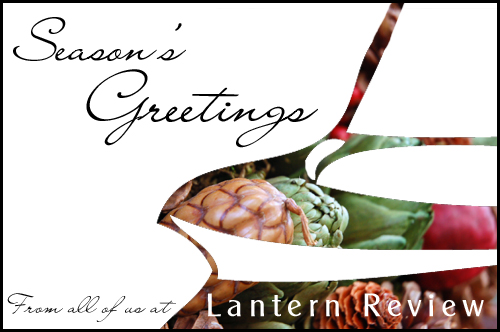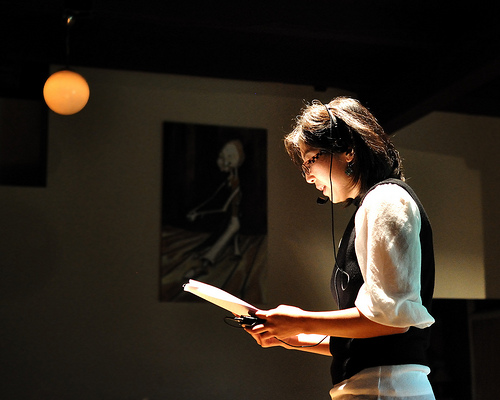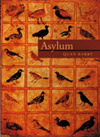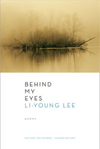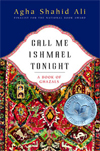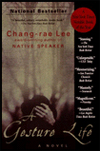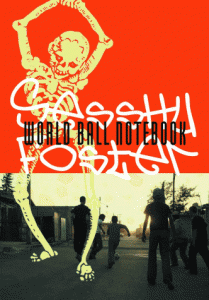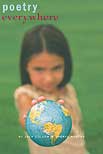Per Diem is a column devoted to reflections on poetics in everyday life from the perspective of an undergraduate creative writing student.

Ever notice how some things look really different at night, when there’s no sunlight? I go out for evening walks every now and then, and I’ve come to love my school campus when it’s dark out. There are less people milling about. Buildings loom taller where the sky is gone. Lampposts add a soft, ethereal glow to shadowed corridors. Not that the campus is ugly during the day. It’s just different. There’s definitely more of a ‘people’ focus when it’s bright. I notice students. I notice trees and squirrels and large white signs in the plaza…
Poetry reminds me of sunlight. I think a poem transforms its subject the same way sunlight transforms a place, by altering my perception of it rather than the thing itself. As though I were looking through a lens of some sort, that takes the form of words on a page, and really, all it’s doing is representing the ordinary as the different and noteworthy.
One of my favorite quotes is by Percy B. Shelley, from his “A Defense of Poetry.” He writes:
“poetry defeats the curse which binds us to be subjected to the accident of surrounding impressions. And whether it spreads its own figured curtain or withdraws life’s dark veil from before the scene of things, it equally creates for us a being within our being. It makes us the inhabitants of a world to which the familiar world is a chaos.”
Poetry rearranges the rules and associations we’ve taken for granted into something more deliberate, more personal, perhaps more in accordance with our private imaginations.
Looking back, quite a few of the so-called “poetic devices” I learned in English class seem to be doing this exactly. Similes, for instance, liken unrelated things to one another. Metaphors take the process a step further and claim that different things are each other, as though physical form is but a façade and what really matters is the essence of an object. Personification makes me reconsider what it means to be human, what human qualities are and where they can be found. Actually, now that I think about it, even rhyme and meter and other such techniques that focus more on language, affect perception; they ask me to reconsider the relationships between meaning and sound, sound and emotion.
Assuming this is true then, that poetry is the act of presenting anew, I ask myself: Must poetry be limited to words? Are there other ways to transform perception, so as to make the mundane seem absolutely spectacular and unique?
Ben-Zhen Sung is LR’s undergraduate correspondent and a senior at Stanford University.
